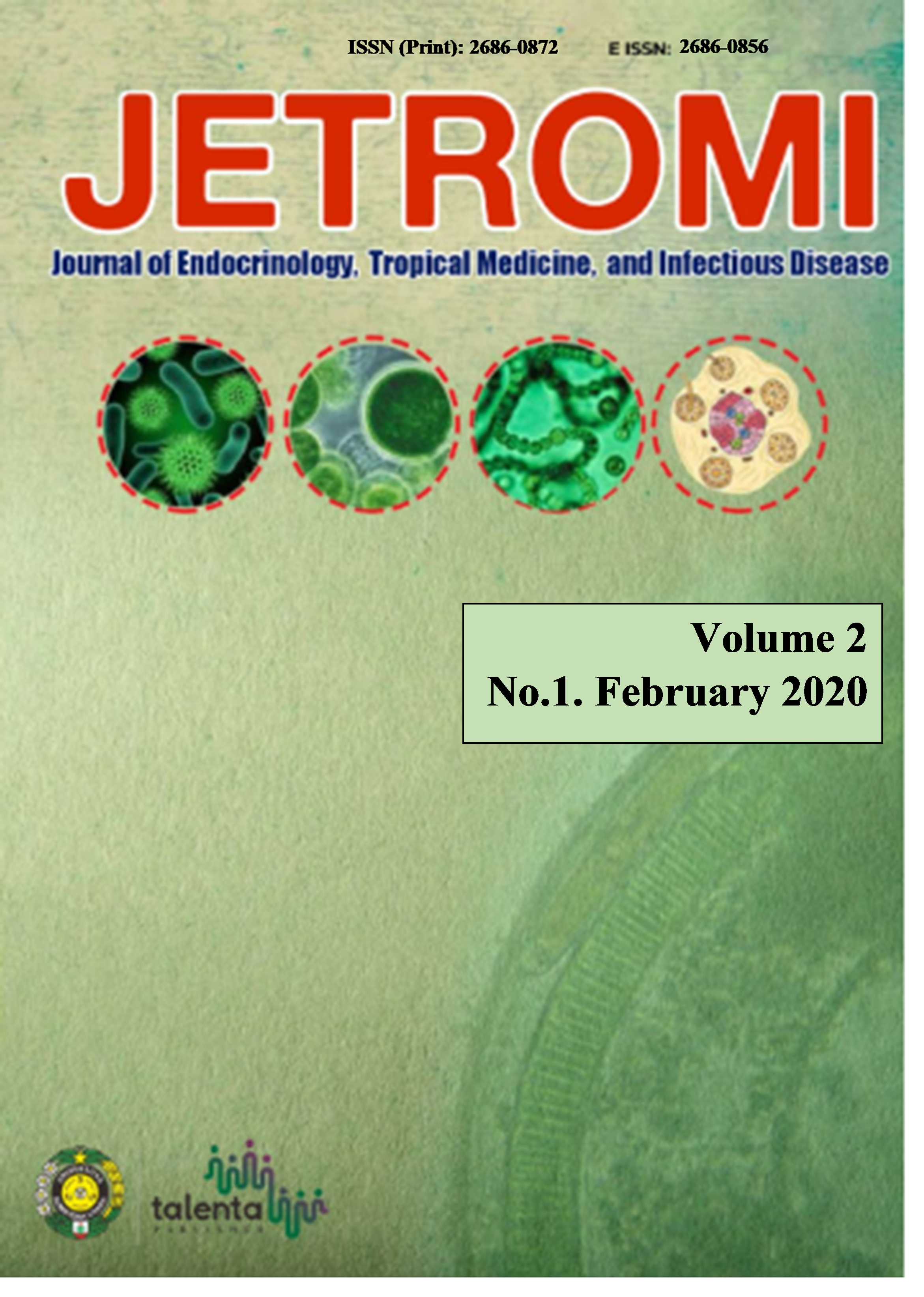The Correlation of Santri’s Personal Hygiene to the Incidences of Scabies in Pesantren Al-Kautsar Simalungun (a boarding school)
DOI:
https://doi.org/10.32734/jetromi.v2i1.3494Keywords:
personal hygiene, scabies, actionAbstract
Background. Scabies is a skin disease caused by the parasite named Sarcoptes scabiei. Scabies commonly found in developing countries, including Indonesia. There is a high prevalence of scabies in children and adolescents. Scabies is an infectious disease influenced by either the presence or absence of risk factors for scabies in each individual. Scabies often occurs among people who live together. Objectives. This study intends to see whether there is an influence of personal hygiene behavior on the incidence rate of scabies. Method. This study is an observational analytic study with a cross-sectional design. Primary data were used in this study. The data were collected by doing history-taking, physical examination, as well as conducting ink tests on lesions on the patient's body to observes scabies, and interviews/questionnaires to observes personal hygiene behavior. The samples were chosen by a simple random sampling method. The data that has been collected will be analyzed using the fisher’s exact statistical test. Results. There are 91 respondents, including 39 men and 52 women with the age range of 12-15 years. Forty eight respondents (52,7%) are diagnosed scabies, 74 respondents (81,3%) have good personal hygiene, 17 of them (18,7%) have a bad personal hygieneConclusion. There is a significant correlation between personal hygiene and the incidence of scabies with p value of 0,001.
Downloads
Downloads
Published
Issue
Section
License
The Authors submitting a manuscript do so on the understanding that if accepted for publication, copyright of the article shall be assigned to Journal of Endocrinology, Tropical Medicine and Infectious Diseases (JETROMI).
Copyright encompasses exclusive rights to reproduce and deliver the article in all form and media. The reproduction of any part of this journal, its storage in databases and its transmission by any form or media, will be allowed only with a written permission from Journal of Endocrinology, Tropical Medicine and Infectious Diseases (JETROMI).








